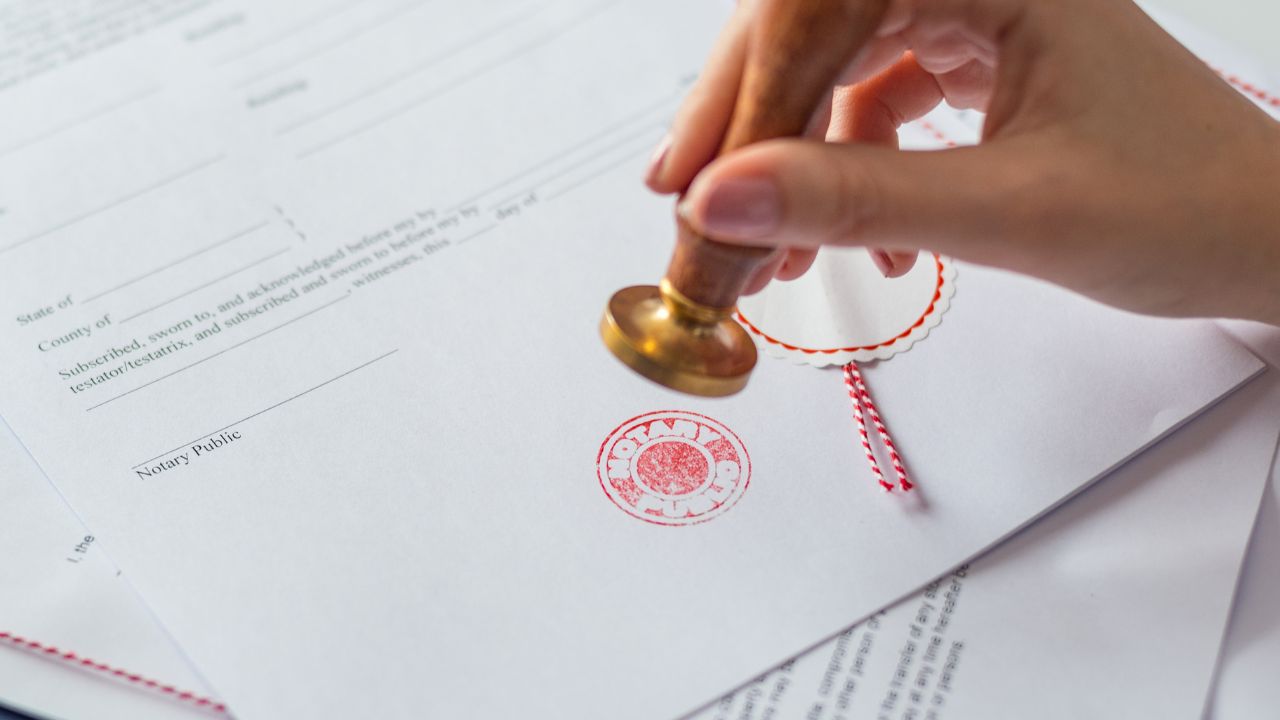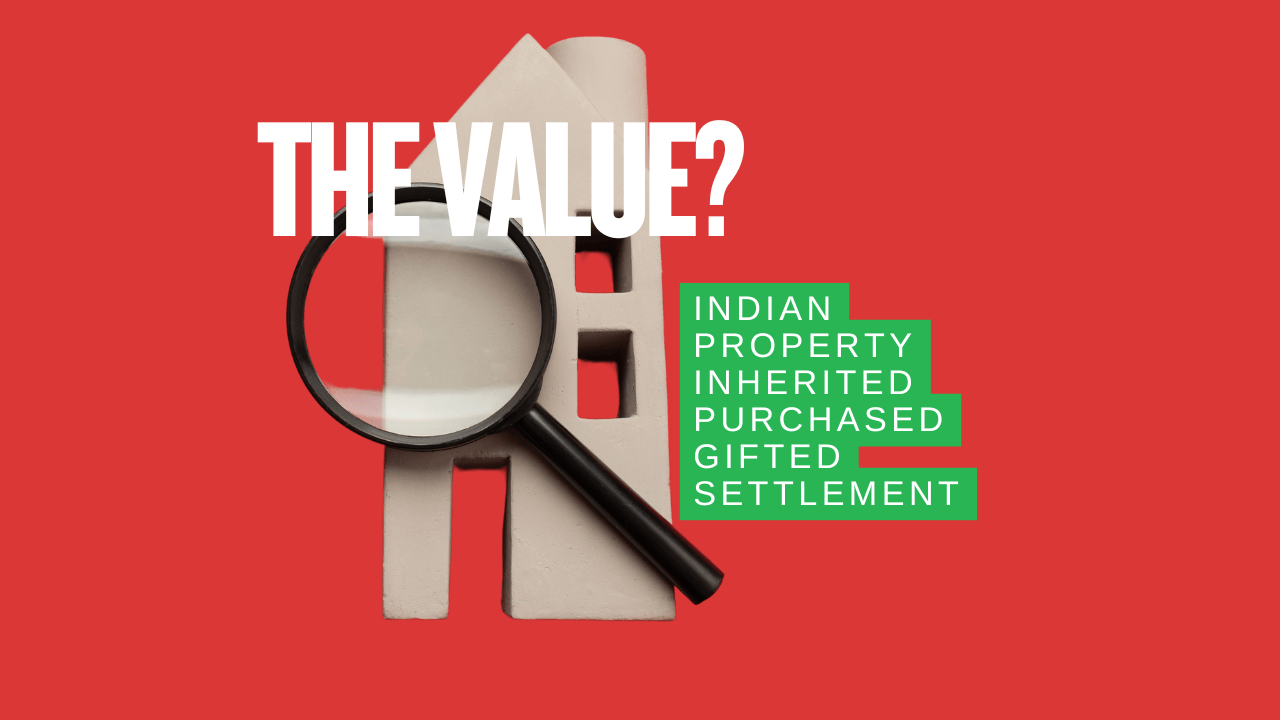As the Overseas Citizen of India card gains significance, more individuals are contemplating obtaining OCI status. Essentially, until further updates by the authorities, the Indian Government authorises OCI status to be indefinite and valid for life.
Similarly, the Person of Indian Origin (PIO) card was comparable to the new OCI. Several individuals may have had a PIO (based on spouse) and may still be considering applying for OCI based on their previous PIO status.
This article provides an overview of the PIO to OCI process and whether a spouse-based PIO can apply for an OCI based on their previous PIO status.
There seems to be some confusion on this, which we clarify further in accordance with the available guidelines.
The Difference: PIO & Overseas Citizen of India Card
Firstly, here are some key differences between a PIO Card and an OCI card:
- PIO (Person of Indian Origin) card:
Aimed at making the journey back to your roots, simpler, easier, flexible and absolutely hassle free.
Eoi.gov.in, Embassies of India, (Ministry of External Affairs)
- Introduced in 1999
- Valid for 15 years
- Allows multiple entries and visa-free travel to India for 15 years
- Only allows for a limited stay of up to 180 days per visit
- No longer issued
2. OCI (Overseas Citizen of India) card:
- Introduced in 2005
- Valid for a lifetime
- Allows multiple entries and visa-free travel to India for a lifetime
- Provides additional benefits, such as the ability to work and live in India indefinitely
- Replaces PIO

Spouse-Based PIO to OCI (Or) Spouse-Based OCI
Taking into account a Spouse-based OCI application, a mandatory requirement for this route is that the marriage has been registered and subsisted for a continuous period of more than two years immediately preceding the presentation of the application.
Let’s look at an example to understand this further:
- For instance, an individual may have been married to a PIO for a continuous period of 2 years and 2 days; therefore, based on the length of the marriage, they are eligible.
- Or, an individual is married for 1 year and 6 months to a PIO; therefore, based on the current marriage length, they are not eligible to apply for OCI based on spouse yet.
Converting to an Overseas Citizen of India from a valid PIO status
Subsequently, if an individual wishes to apply for OCI based on a previously valid PIO, the following routes may apply:
- An individual applies based on PIO obtained through marriage (ie spouse based); the marriage still exists and has subsisted for over 2 years.
- An individual applies based on (self) through ancestral ties through their existing valid PIO status.
Key Eligibility Factors: (1) Length of Marriage (2) Still Married
To be eligible for a spouse-based OCI, your marriage must fall inline with the requirements.
The application requires explicitly individual consent per the following:
“That I am married 2 years prior to the date of submission of OCI Application and we are not divorced or separated.”
Helpful example
For instance, if you were married to a Person of Indian Origin and obtained a PIO based on your spouse (similar to the current OCI) and the marriage no longer exists, in this case, your PIO would no longer be valid.
However, you may apply for a new OCI based on (self), providing you meet the eligibility criteria outlined by the Indian authorities.
An Overview of The PIO To OCI Process
In terms of the overall process to apply for OCI based on a valid PIO, there are several steps involved. Here is an overview on some of the steps:
- Step 1: Check your eligibility & documents
- Step 2: Online application process: OCI Registration (In Lieu of Valid PIO-Card)
- Step 3: Physical application preparation
- Step 4: Physical Submission
- Step 6: Face to face appointment
Guarantee of OCI Status Approval
The OIC application process whether, based on an existing PIO or a new OCI does not guarantee automatic approval.
The Indian authorities check and approve each application on individual merit. In some cases more information can be requested that may not be outlined on the online information.
Further, there may also be a need to attend an appointment in person if requested by the HCI.
Therefore, it is better to be well prepared given the circumstances.
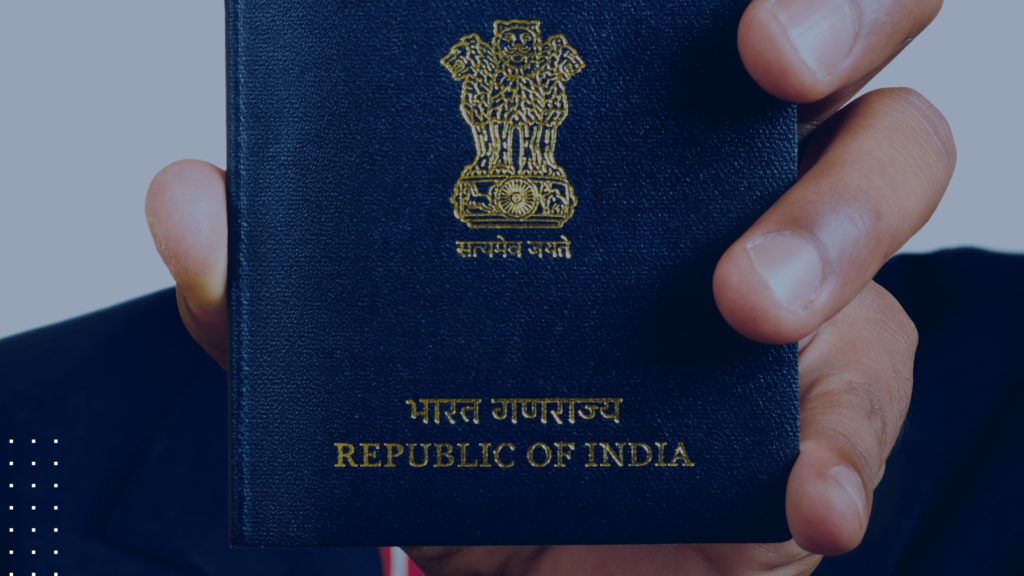
Types of Required Documents
Several documents are required as outlined by the requirements to apply for PIO to OCI. Some of these documents also need to be originals as well as copies.
A number of individuals, apply for OCI with insufficient documents and more often than not, their application is rejected at that stage.
However, the HCI may also provide further guidance, enabling the individual to re-apply based on the reason for rejection. Or pending further documents requested.
Here is a list of important documents required for PIO to OCI:
- Current passport (Signed Photo page)
- PIO card (First page and Last Page)
- Registered Marriage Certificate
- For married persons, spouse passport copy
- Divorce Certificate if Applicable
- UK Address Proof
- Employment Letter /Student ID/Certificate of Incorporation. (Whichever applicable).
- Lost Document Police report required for PIO/Passport Lost cases.
List Source: vfsglobal, PIO document uploading checklist
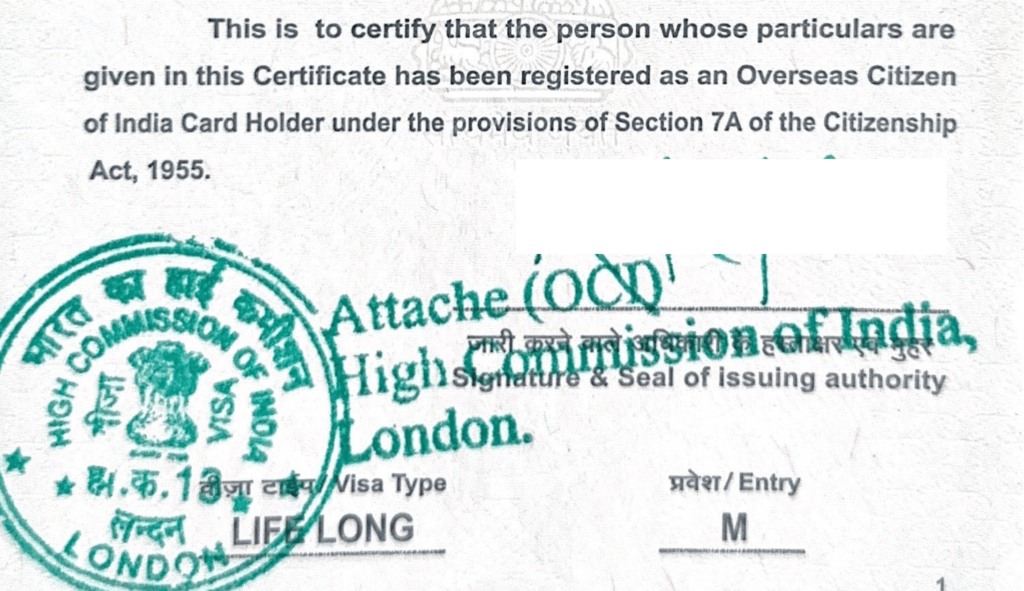
Applicant & Spouse Based In-Person Appointment
Lastly, individuals applying for OCI based on spouse may be required to attend an in-person appointment with the High Commission of India.
At this appointment, both the applicant and spouse may be required to attend.
Secondly, in some cases, the HCI may require a video conference call at the sole discretion of the Indian authorities.
Therefore, ample time should be considered to enable you to attend the appointment should you be asked to do so.
This process is at the sole discretion of the Indian authorities.
Summary
In summary, this article provides an overview of the PIO to OCI process and whether a spouse-based PIO can apply for an OCI based on their previous PIO status.
It highlights key differences between a PIO Card and an OCI card and explains the eligibility criteria for converting from a valid PIO status to an OCI.
Furthermore, an overview of the process and required documents for applying for OCI based on a valid PIO and emphasises the importance of being well-prepared for the application process.
To conclude, each application is checked and approved on individual merit and attending the in-person appointment with the High Commission of India may be necessary.
(This is an informational post only. Seek the advice of a professional or visit the HCI directly for more information. Source of reference (s): official site of the Overseas Citizenship of India Scheme Ministry of External Affairs India, HCI).
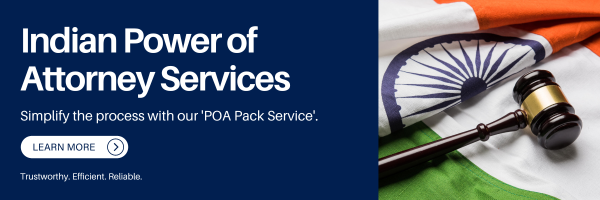
Overseas Citizen of India Requirements of Power of Attorney
As an Overseas Citizen of India, you may require Indian legal guidance on initiating and executing a Power of Attorney for Indian matters. View our experienced legal Power of Attorney Services for India.
Frequently Asked Questions
You must follow the application process outlined by the High Commission of India in your country of residence.
For an individual to apply for spouse based OCI, the marriage must have subsisted for more than 2 years and the individuals must still be married.
Yes, should the HCI require you to do so.
Multiple entry lifelong visa for visiting India for any purpose, excluding research work in India.



